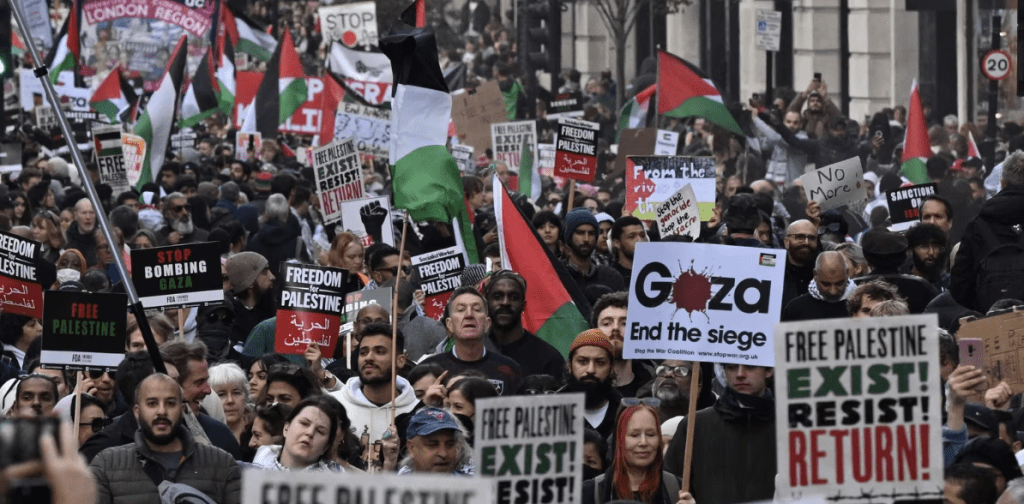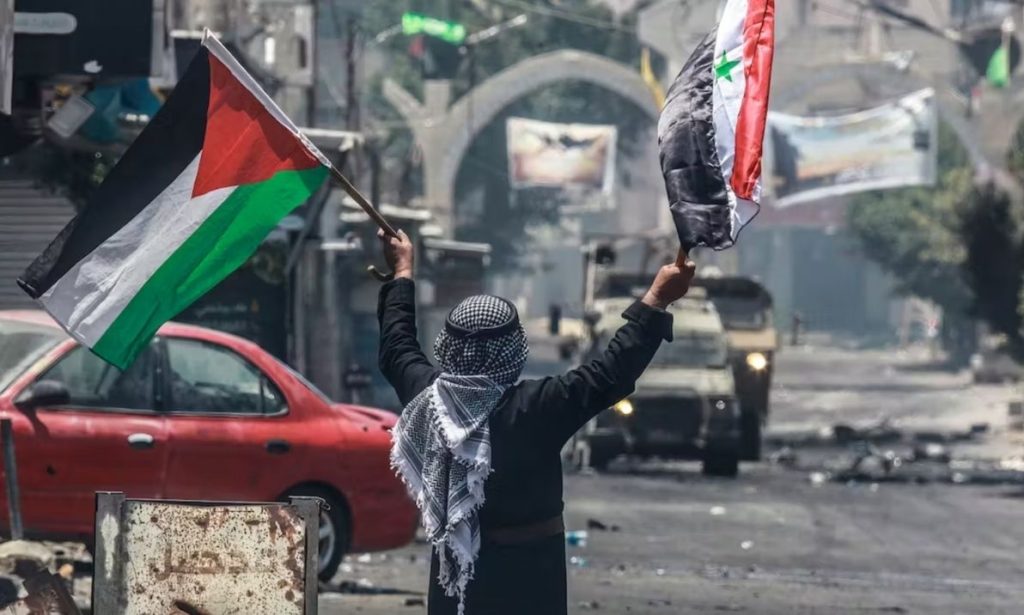South Africa’s President, Matamela Cyril Ramaphosa, has declared his unwavering support for the Palestinian people in their ongoing struggle against the Israeli occupation and its brutal acts. In a powerful speech, he described Israel as a deceitful, racist occupier and expressed solidarity with the Palestinian people.
Ramaphosa went on to denounce the Israeli government as duplicitous, emphasizing that Palestinians have been resisting occupation for over 75 years.
In a video message shared on his official Twitter account, he stated, “The Palestinians are fighting against a deceitful, racist system, and we stand in solidarity with the Palestinian people. In the African National Congress, we consistently demonstrate our support for the Palestinian people and emphasize that the only solution to the problem in the Middle East, particularly between Israel and Palestine, is a two-state solution based on the 1967 borders.”
South Africa’s President joins several other nations that have expressed their support for the Palestinian people during the ongoing crisis. They have stood with Palestine in the face of the Israeli occupation’s genocidal campaign.
Furthermore, people across the world have taken to the streets in a show of solidarity with the Palestinian people. They have condemned the Israeli military’s relentless assault on Gaza, which has resulted in over 2,000 casualties, including more than 6600 injured. All while many Western countries insist on describing the Palestinian resistance as terrorism.

Resilience Against Injustice: The Palestinian Resistance and South African Apartheid Struggle
As we reflect on South Africa’s unwavering support for the Palestinian people, we are reminded of the historic parallels between the South African struggle against apartheid and the Palestinian resistance against Israeli occupation and apartheid policies. These stories of resilience and solidarity against injustice continue to inspire the world. Throughout history, the fight against oppression and injustice has often been a struggle marked by remarkable resilience and unwavering determination. One of the most vivid examples of this is the South African struggle against apartheid, a system of institutionalized racial segregation that endured for decades.
A dark chapter in South African history, was challenged by individuals, movements, and the international community. The African National Congress (ANC), led by figures like Nelson Mandela, played a pivotal role. However, the struggle faced substantial criticism from Western powers, notably the United States and Israel, which described it as terrorism.
The South African fight against apartheid serves as a compelling parallel to the Palestinian resistance against Israeli occupation and apartheid policies. The ANC’s struggle was marked by both non-violent and armed resistance, similar to the strategies employed by Palestinians under occupation. The Israeli-Palestinian conflict has also faced criticism from Western states, with accusations of terrorism leveled at Palestinian resistance movements.
Comparatively, these two historical struggles share common threads. Both were rooted in a quest for justice, self-determination, and the end of systemic discrimination. And both encountered international scrutiny and were labeled as terrorism by certain Western nations.
The parallel doesn’t end there. Just as international solidarity helped bring an end to apartheid in South Africa, the global community plays a significant role in addressing the Israeli-Palestinian conflict. The Boycott, Divestment, Sanctions (BDS) movement, for instance, mirrors the boycotts and sanctions imposed on apartheid-era South Africa.
In conclusion, the South African fight against apartheid and the Palestinian resistance against Israeli occupation and apartheid policies are emblematic of the enduring human spirit to resist injustice. They remind us that the fight for equality and self-determination transcends borders and ideologies. While the characterization of these struggles as terrorism remains a contentious issue, it is crucial to recognize the broader context in which these movements emerged and the common threads that connect them as they both strive for a more just and equitable world.
WE SAID THIS: Don’t Miss…Gaza Forced To Turn Ice Cream Trucks Into Morgues As Death Toll Rises



